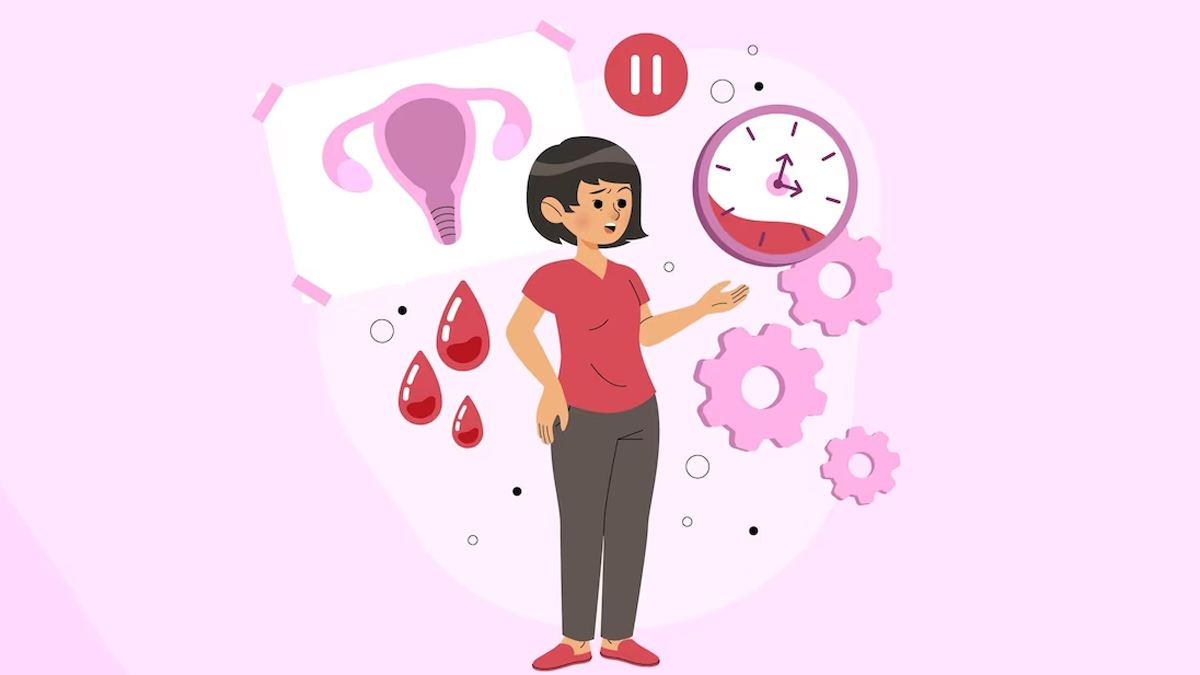
Perimenopause, which means "around menopause," is the time when your body naturally undergoes a transition to menopause, signalling the end of the reproductive years. Perimenopause stage can last for several years, during which women may experience a variety of symptoms due to fluctuating hormone levels, particularly oestrogen and progesterone. Recognising the signs of perimenopause can help in managing this natural phase of a woman's life more effectively. Here are 10 important signs that may indicate you are in the perimenopausal stage:
Table of Content:-
1. Irregular Periods
One of the first signs of perimenopause is changes in menstrual cycle regularity. Your periods may become longer or shorter, lighter or heavier, or more or less frequent until they eventually stop. According to MayoCinic, if you go 60 days or more between periods, you're likely in late perimenopause.

Also read: Namita Thapar Talks About Perimenopause On Shark Tank; Here’s What It Is
2. Hot Flashes
“A common symptom, hot flashes are sudden feelings of warmth, usually most intense over the face, neck, and chest, which can lead to flushing and sweating. Some women may experience chills afterward,” said Dr Manisha Mishra Goswami, Medical Adviser, Charak Pharma Pvt Ltd.
“While the specific origin of hot flashes during perimenopause is unknown, hormonal changes, notably variations in oestrogen levels, are thought to have a significant influence,” Dr Goswami added.
3. Sleep Problems
“Sleep problems are common in perimenopause, and perimenopause can increase it further”, said Dr Goswami.
Perimenopause can disrupt sleep patterns, making it harder to fall asleep or stay asleep. Night sweats related to hot flashes can also disturb sleep.

4. Mood Changes
According to The American College of Obstetricians and Gynecologists, during perimenopause, approximately four out of ten women have mood problems similar to PMS (premenstrual syndrome). You may feel irritable, tired, teary, and cranky, or have difficulty concentrating.
5. Vaginal and Bladder Problems
Decreasing levels of oestrogen can lead to thinning and drying of the vaginal tissue, causing discomfort during sex and increased risk of vaginal infections. Urinary urgency and an increased risk of urinary tract infections (UTIs) may also occur.

6. Decreased Fertility
As ovulation becomes more erratic, the chances of conceiving naturally decrease. However, pregnancy is still possible, so contraception should be continued if you wish to avoid pregnancy.
Also read: Perimenopause An Opportune Window To Prevent Menopausal Weight Gain: Study
7. Changes in Sexual Function
In addition to vaginal dryness, you may notice a decrease in libido. Changes in hormonal levels can affect sexual desire and arousal.
8. Weight Gain and Metabolism Changes
Many women experience weight gain and a shift in fat distribution, often around the abdomen, due to changes in hormones and metabolism during perimenopause.
9. Loss of Bone Density
Decreased oestrogen levels can lead to a decrease in bone density, increasing the risk of osteoporosis and fractures.
10. Changing Cholesterol Levels
Perimenopause can lead to increases in bad cholesterol (LDL) and decreases in good cholesterol (HDL), which may raise the risk for cardiovascular disease. You can manage you perimenopausal symptoms through following techiniques.
- A balanced diet, regular exercise, and sufficient sleep can help manage symptoms.
- Techniques such as yoga, meditation, and deep breathing can help alleviate mood swings and anxiety.
- For some women, hormone replacement therapy (HRT) can help manage severe symptoms, although it's not suitable for everyone.
- Vaginal moisturisers, lubricants, and certain medications can alleviate vaginal dryness and discomfort.
Read Next
Endometriosis Awareness Month 2024: Doctor Addresses Why Endometriosis Goes Undiagnosed For Years
How we keep this article up to date:
We work with experts and keep a close eye on the latest in health and wellness. Whenever there is a new research or helpful information, we update our articles with accurate and useful advice.
Current Version